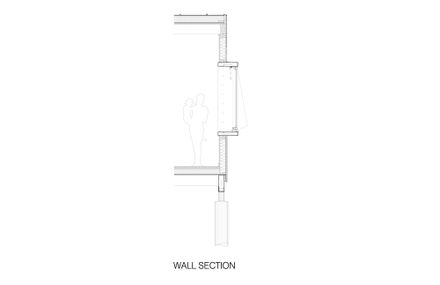
Whitetail Woods Regional Park Camper Cabins
ARCHITECTS
Hga Architects And Engineers
LIGHTING DESIGN
Hga, Chysanthi Stockwell
MANUFACTURERS
Centria, Marvin, Sansin, Virginia Tile & Stone, Western Red Cedar, Dakota County, Douglas Fir, Maple Wood
PROJECT ARCHITECTS
Rob Good
ELECTRICAL ENGINEER
Hga, Ben Gutierrez, Greg Aune
PRINCIPAL IN CHARGE
Jim Goblirsch
PRINCIPAL DESIGNER
Steven Dwyer , Asla
MECHANICAL ENGINEER
Hga, Leighton Deer, Julie Hagstrom
STRUCTURAL ENGINEER
Hga, Tony Staeger, Bryan Greger
LANDSCAPE ARCHITECT
Erica Christenson, Asla; Trygve Hansen, Asla, Leed Ap; Nissa Tupper, Asla
PROJECT MANAGER
Erica Christenson, Asla
CIVIL ENGINEER
Hga, Kenny Horns, Bradley Roath
LANDSCAPE PROJECT TEAM
Erica Christenson, Asla; Trygve Hansen, Asla, Leed Ap; Nissa Tupper, Asla
LOCATION
Farmington, United States
CATEGORY
Cabins & Lodges
Text description provided by architect.
Nestled into the hillside of a new regional park within the Minneapolis/St. Paul metropolitan area, three new camper cabins - built by county employees with the aid of high school students in a vocational training program.
Weave their way into a stand of pine trees. They serve as a key amenity in the first phase of the parks master plan.
The concept for the cabins riffs on the idea of a treehouse, but instead makes it accessible to all by building a “house in the trees” entered from a bridge at the crest of the hill along adjacent ski and hiking trails.
At 227 square feet with an 80 square foot deck, the cabins provide ample square footage, electricity, lighting, heat and natural ventilation with framed views into the surrounding forest bringing modern comfort to the overnight outdoor adventurer.
Two full-size bunks with built-in-storage, dining and sitting areas provide optimized cabin accommodations for four individuals while sleeper sofa and additional folding seating, hidden via built-in-storage, can comfortably accommodate six. The cabins are supported by a bathhouse farther up the hill.
Built on concrete piers to minimize the impact on the surrounding wilderness, the cabins hover between 14 and 16 feet above grade with trees almost at arms-reach, creating privacy and intimacy with the natural environment.
Above the concrete pier foundation the structure is comprised of a red cedar glulam chassis, cedar and pine framing depending on visibility and exposure, and red cedar cladding throughout.
Dark cedar shingles on the exterior blend seamlessly with the beauty of the pine forest, in which it is situated while the interior is stained naturally to create an immersive warm environment. Floor-to-ceiling glass at the deck frames the forest, creating a focal centerpiece from the interior.

















